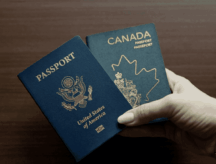US Immigration H1B Quotas
Foreign professionals who wish to work in the United States are required to apply for and be issued an H-1B Visa. The United States Immigration and Naturalization Service (INS) sets a numerical limitation or "cap" to the number of new H-1B Visas that can be issued during a fiscal year (October 1-September 30).
Last year, the cap of 115,000 was officially reached in June. Even more problematic, the last H-1B petitions to be approved for fiscal year 1999 were received by the INS by April 12, 1999. As a result, there were 5 ½ months during which no new H-1B petitions could be approved.
Unfortunately, it appears that the situation for fiscal year 2000 (October 1999 - September 2000) will be even worse. Although the INS has not yet released data on the number of H-1Bs counted against the fiscal year 2000 cap, estimates indicate that as many as 40,000 H-1Bs, carried over from fiscal year 1999, have been approved, thereby reducing the fiscal year 2000 allotment to a mere 75,000 visas. Based on past experience and the ongoing demand for foreign workers in the United States, it is likely that the H-1B cap for this fiscal year will be reached imminently.
Once the cap has been reached, the INS will not approve any new H-1B Visa petitions until the new fiscal year begins on October 1, 2000. Consequently, US employers will be unable to sponsor any new H-1B temporary professional workers for employment unless that employment commences after October 1, 2000. Reaching the cap will not affect those foreign nationals already in H Visa status.
In light of the restrictions on H-1B Visa opportunities, foreign individuals who wish to work temporarily in North America should consider Canada as an alternative to the United States. Unlike the United States, there is no formal "cap" on the number of foreign workers who are admitted into Canada each year for temporary employment purposes. And Canada offers opportunities for competitive careers, a lower cost of living, a greater network of social services and lower levels of crime in major metropolitan areas.
As a general rule, foreign individuals seeking to work temporarily in Canada require an employment authorization from Canadian immigration officials. The application process can be difficult and may require the foreign individual and the proposed Canadian employer to have the particular job offer approved (validated) by a Canadian Human Resources Development Centre.
Fortunately, exemptions from the job validation and employment authorization requirements are available for certain activities, as well as under the North American (NAFTA)/Canada-Chile Free Trade Agreement, the General Agreement on Trade in Services (GATS), the Pilot Project for Software Professionals, the Pilot Project for Spouses of Highly Skilled Workers, and other regulatory programs. In fact, the reliance upon validation exemptions has become so prevalent that the system is essentially one governed more by the exception than by the rule. For more information on working in Canada, consult the Temporary Employment section of our website.
- Do you need Canadian immigration assistance? Contact the Contact Cohen Immigration Law firm by completing our form
- Send us your feedback or your non-legal assistance questions by emailing us at media@canadavisa.com



